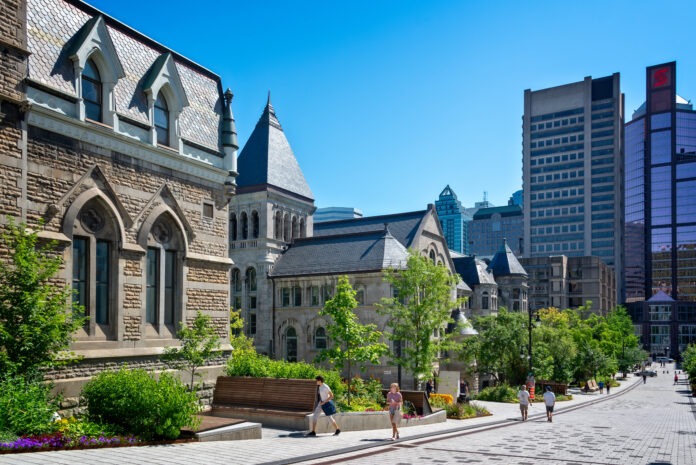
Canada’s provinces pledged to improve their oversight of the treatment of international students but also warned Ottawa’s proposed cap on study permits could lead to the closure of some colleges and universities.
Immigration Minister Marc Miller announced earlier this week he is going to slap the provinces and territories in Canada with a two-year cap on international students that is expected to reduce the number of study permits by more than a third.
“The cap is expected to result in approximately 364,000 approved study permits, a decrease of 35 per cent from 2023,” Miller reportedly said. “In the spirit of fairness, we are also allocating the cap space by province, based on population.”
Under the proposed cap on study permits, the provinces and territories will each have a limit on their ability to welcome new international students.
Those proposed limits will allow some provinces to increase their international student population while dramatically cutting it in other provinces, including Ontario.
Read More Canada Immigration News
Fixed Numbers Of International Students For Each Canadian Province Being Considered
Marc Miller Says Canada Considering Cap On International Students,
Despite Labor Shortage, Quebec Alienates International Students
The proposed cap on study permits was announced the same week as the eligibility requirements for Post-Graduation Work Permits (PGWP) were changed. Under the new criteria, students attending some private colleges might not qualify for PGWPs upon graduation.
“Starting Sept. 1, international students who begin a study program that is part of a curriculum licensing arrangement will no longer be eligible for a post-graduation work permit upon graduation,” notes Immigration, Refugees and Citizenship Canada (IRCC).
“Under curriculum licensing agreements, students physically attend a private college that has been licensed to deliver the curriculum of an associated public college. These programs have seen significant growth in attracting international students in recent years, though they have less oversight than public colleges and they act as a loophole with regards to post-graduation work permit eligibility.”
The immigration minister reiterated this week that international students are vital to Canada and enrich communities but insisted Ottawa has an obligation to ensure that they have access to the resources they need for an enriching academic experience.
Watch Video
“In Canada, today, this isn’t always the case,” he said. “Today, we are announcing additional measures to protect a system that has become so lucrative that it has opened a path for its abuse.
“Enough is enough. Through the decisive measures announced today, we are striking the right balance for Canada and ensuring the integrity of our immigration system while setting students up for the success they hope for.”
The immigration minister first indicated his displeasure with the current treatment of international students last year when he asked the provinces to look into private colleges and their quality of education.
This week, Miller said the provinces have not taken action quickly enough.
With the proposed caps on study permits looming, though, the provinces are now taking the immigration very seriously.
British Columbia’s minister of post-secondary education, Selina Robinson is among those provincial politicians vowing to take a suite of actions to improve quality controls for international students. She has told CBC Radio she is appalled by the actions of some of the province’s post-secondary institutions who recruit students with promises of guaranteed housing and in-class instruction.
Private Colleges Worry About Financial Hit Of Fewer International Students
“The student does all the right things and they arrive and there is no housing, there are no supports, and in fact I’ve heard cases where there is no classroom,” Robinson reportedly said.
“We’re going to be requiring much more accountability by these private institutions.”
Ontario’s advanced education minister, Jill Dunlop, agrees.
“We know some bad actors are taking advantage of these students with false promises of guaranteed employment, residency, and Canadian citizenship,” she reportedly said. “We’ve been engaging with the federal government on ways to crack down on these practices.”
Across the country, some colleges and universities are bracing for an economic blow as the number of international students, all of whom pay higher tuition fees than Canadian students, drops.
Colleges and Institutes Canada (CIC) is worried about how the caps on study permits will affect post-secondary institutions.
“This approach, characterized by Minister Miller as a ‘blunt instrument,’ will have far-reaching consequences across the sector, especially in key regions, including the possibility of layoffs, closures and increased tuition fees – all of which will inevitably affect both Canadian and international students,” the CIC reportedly stated.
“Chronic public underinvestment in post-secondary education puts Canada’s world-class system at risk. Without significant reinvestment, we risk compounding the challenges facing Canada’s economy and society, especially in the context of fierce global competition.”

